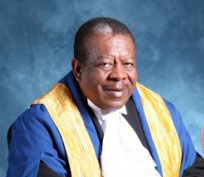(Jamaica Gleaner): Sir Dennis Byron, immediate past president of the Caribbean Court of Justice (CCJ), has questioned whether simple political issues are impeding all Caribbean Community (CARICOM) states from using the CCJ as their final appellate court.
“In my discussions, the only substantive issue that I have heard people express is doubt about the independence of the judiciary.
“But I don’t think that’s a very serious opposition when you take into account the quality of people we have at the court, the quality of judges, and the institutional protections against political interference at all levels,” Sir Dennis told The Gleaner on Wednesday evening as his stint came to an end. Justice Adrian Saunders was sworn in as the CCJ’s third president at a ceremony held in Montego Bay, St James.
Sir Dennis admitted that when he took up the post in 2011, he had a naÔve expectation that all remaining states would abolish appeals to the Privy Council. Barbados, Belize, Dominica and Guyana are the only territories that utilise the CCJ in its appellate jurisdiction.
Nevertheless, the jurist expressed satisfaction with the level of judgements delivered by the court.
He recounted, “There were very important cases that came before the court, and I think that the one that is most popular in Jamaica is the Shanique Myrie case. But there are many other cases on a wide range of topics where I think we advanced the quality of Caribbean jurisprudence.”
Shanique Myrie underwent two cavity searches in March 2011 and was denied entry into Barbados. The CCJ ruled that as a CARICOM national, Myrie had an automatic six-month stay in the country.
Sir Dennis added, “I think we demonstrated a strong capacity for efficiency in the administration of justice and the judicial process. We managed our cases quickly without any backlog, and we have used technology to support the judicial process and develop case-management techniques which have made things much easier for people to get access to the courts.”






